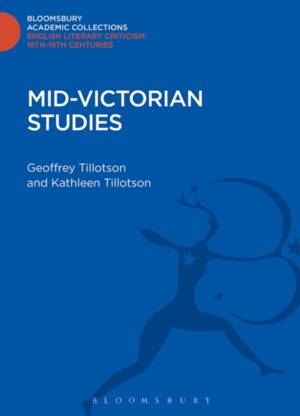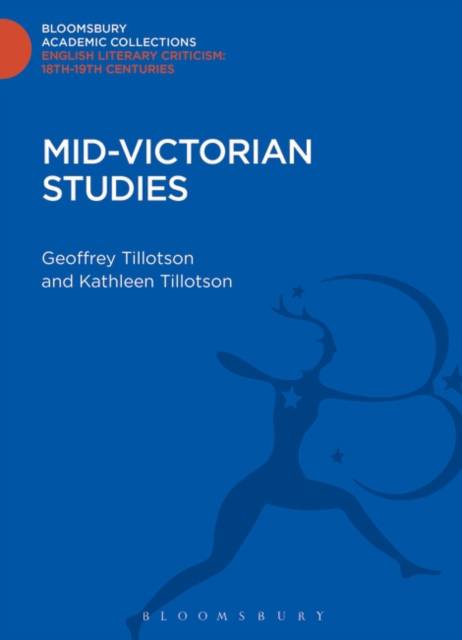
Bedankt voor het vertrouwen het afgelopen jaar! Om jou te bedanken bieden we GRATIS verzending (in België) aan op alles gedurende de hele maand januari.
- Afhalen na 1 uur in een winkel met voorraad
- In januari gratis thuislevering in België
- Ruim aanbod met 7 miljoen producten
Bedankt voor het vertrouwen het afgelopen jaar! Om jou te bedanken bieden we GRATIS verzending (in België) aan op alles gedurende de hele maand januari.
- Afhalen na 1 uur in een winkel met voorraad
- In januari gratis thuislevering in België
- Ruim aanbod met 7 miljoen producten
Zoeken
Omschrijving
This collection of lectures, broadcasts, reviews, and articles (several of which have not previously been published) embraces many aspects of the English literary scene in the middle of the nineteenth century. Though various in origin the collection has this unity: it has been the constant concern of its authors for many years that the great and lasting contribution of the mid-Victorian period to our literature should be fully vindicated, and its appraisal based upon secure foundations of critical scholarship. The book has moreover an obvious connection with the volume on the mid-nineteenth century which the Tillotsons are preparing for the Oxford History of English Literature, though the items included here are not samples of that history but rather 'milestones, or halting places, in the several ways that lead towards it'. There are important studies of Carlyle, John Henry Newman, Tennyson, Clough, Matthew Arnold, and George Eliot. These, however, represent only one side of the book's interest, for there are accounts of writers famous in their day, as Harriett Mozley and Charlotte M. Yonge, but since the cross-currents at work in the period, notably 'Writers and Readers in 1851', which vividly convey much of the quality of the momentous years in which so many masterpieces were produced. At several points indeed the volume demonstrates that the truth about the literature of the nineteenth century, in distinction (for the most part) to that of earlier centuries, may be recovered complete.
Specificaties
Betrokkenen
- Auteur(s):
- Uitgeverij:
Inhoud
- Aantal bladzijden:
- 335
- Taal:
- Engels
- Reeks:
Eigenschappen
- Productcode (EAN):
- 9781472507136
- Verschijningsdatum:
- 8/05/2014
- Uitvoering:
- Hardcover
- Formaat:
- Genaaid
- Afmetingen:
- 156 mm x 234 mm
- Gewicht:
- 666 g

Alleen bij Standaard Boekhandel
+ 644 punten op je klantenkaart van Standaard Boekhandel
Beoordelingen
We publiceren alleen reviews die voldoen aan de voorwaarden voor reviews. Bekijk onze voorwaarden voor reviews.









